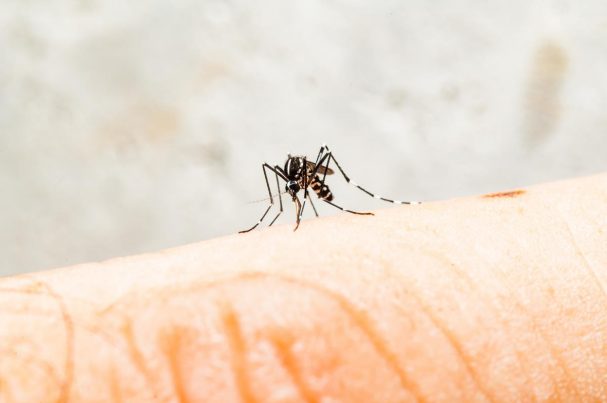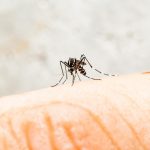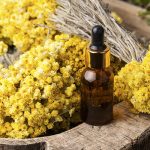
Microencapsulated compound from thyme essential oil kills larvae of dengue mosquitoes, study finds
Tuesday, August 18, 2020 by Divina Ramirez
http://www.naturalnewsresearch.com/2020-08-18-microencapsulated-thyme-essential-oil-kills-mosquito-larvae.html

Dengue is a mosquito-borne tropical disease that continues to be a pressing problem in some countries. Despite being painful and debilitating, it remains a neglected disease due to scant research, and there isn’t a range of treatments to choose from outside of bed rest and medication.
In a major breakthrough, scientists from the University of Sao Paulo (USP) in Brazil used corn starch to create a delivery system for thyme essential oil. The group then manipulated these microcapsules to modulate the release of thymol, the active component of thyme essential oil, which has natural insecticidal properties .
The Brazilian team hope that the microencapsulated insecticide can help curb the spread of dengue at the earliest possible stage of its mosquito carrier’s life cycle. Their findings were published in the journal Industrial Crops and Products.
Corn starch and thyme essential oil: a deadly combination for dengue mosquito larvae
Brazil is just one of several countries that continue to face a serious crisis involving mosquito-borne diseases. Being in a tropical zone, Brazil is a hotspot for Aedes aegypti mosquitoes, which are responsible for spreading dengue and Zika, another viral pathogen that causes pain and malaise. (Related: High dose vitamin C can treat dengue fever and Zika virus.)
To stamp out the spread of dengue, the USP team attempted to tackle mosquitoes at the larval stage. Mosquitoes are at their most vulnerable during that stage and are not yet carriers of any pathogen. In fact, experts consider it best to tackle dengue during, or even before, this stage.
One of the many things that compromise preventive measures against the spread of dengue is the fact that essential oils, although potent as antimicrobial and insecticidal agents, don’t dissolve well in water, where mosquito larvae thrive. Essential oils also degrade and evaporate fast when applied to wet environments.
To circumvent these limitations, the researchers used a technique called thermoplastic extrusion to create microcapsules for thyme essential oil — one of the most potent essential oils for repelling mosquitoes. They used corn starch, a cheap, abundant and biodegradable resource, to develop the microcapsules. The researchers tested different formulations until they found the right one that allowed the essential oil to be released in a controlled manner in an aquatic environment.
According to principal investigator Ana Silvia Prata, the idea is for the microcapsules to remain inert in a dry environment. Then, as soon as the microcapsule is exposed to water, the shell would gradually swell up and release the larvicide.
The microcapsules developed by Prata and her team behave exactly like the eggs laid by A. aegypti mosquitoes. They are inert in dry environments but start releasing their content when they come in contact with water.
Safe, effective and cost-efficient larvicide might help stamp out dengue
Public health authorities in Brazil tend to focus on large water containers and reservoirs believed to be major breeding grounds of dengue mosquitoes, said Prata.
But epidemiological studies on dengue reveal that small water “containers” like discarded tires, clogged drainage and other discarded containers account for 50 percent of dengue mosquito breeding grounds.
Prata added that their larvidicide is cost-efficient because of the cheap and biodegradable ingredients used to make it. This means that the larvicide can be produced in large quantities for public use.
The idea is to distribute the larvicide in areas where dengue is prevalent and to supplement these efforts with educational and awareness campaigns against dengue, said Prata.
The group has filed for a patent application through Inova, the innovation agency of the University of Campinas (UNICAMP) in Sao Paulo.
Read more articles about essential oils that can kill and repel mosquitoes at EssentialOils.news.
Sources include:
Tagged Under: Tags: breakthrough, corn starch, dengue prevention, discoveries, essential oils, goodscience, innovation, invention, natural larvicide, phytonutrients, prevention, remedies, research, thyme, thyme essential oil, thymol
RECENT ARTICLES


Suffering from post-gym muscle pain? The solution probably isn’t a protein shake, suggest scientists

Microencapsulated compound from thyme essential oil kills larvae of dengue mosquitoes, study finds

Can geographical location affect the chemical composition of plant-based essential oils? Science explains

Exercise 13 minutes every day to increase your life expectancy by 3 years, advise experts
COPYRIGHT © 2017 NATURAL NEWS RESEARCH


